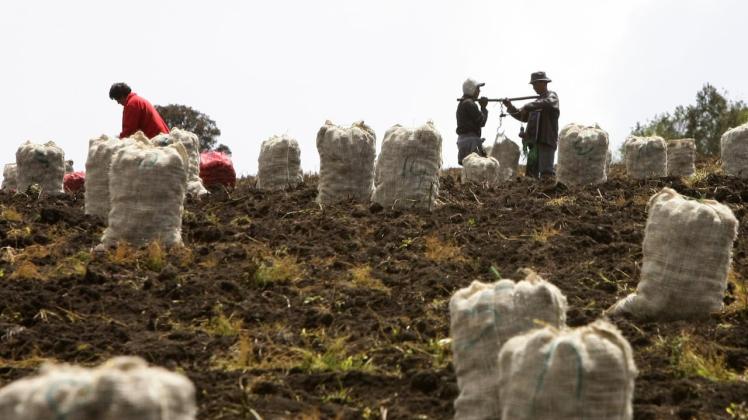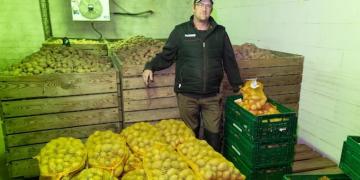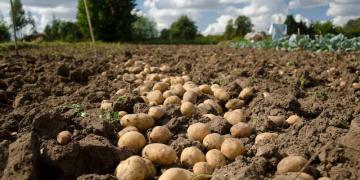Colombia: “For every 40 million pesos invested, the potato producer only recovers 4 million”
The potato sector in Colombia faces low prices, uncertain weather and a lack of planning, which threatens profitability and forces a rethinking of production.

The price of potatoes fell to 1,221 pesos per kilo paid to producers in March, a 12% decrease compared to the same month last year. This figure, reported by the National Potato Development Fund (FNFP), reflects the pressure this crop faces, as it is sensitive to factors such as weather, water availability, and soil conditions.
For many producers, continuing to plant has become an increasingly uncertain decision, marked by high costs and profitability that does not always match the effort in the field.
See morePotato Market ReportWholesale PricesRetail pricesTrips to agricultural fairsMarket QuotesAgricultural work clothespotatoOnline advertisingSoil analysis servicesPotato CultivationIn this context, John Colmenares, a producer from the municipality of Villapinzón, Cundinamarca, insisted on the urgency of rethinking the way in which each planting cycle is planned.
“Sustaining a product involves variables. Today, most farmers, especially potato growers, don’t do their homework,” he stated, referring to the accelerated changes in climate and the need to rely on forecasts and prior analysis.
He explained that many farmers end up exposed because they plant without rigorously evaluating the market, weather conditions, or the availability of resources.
“Climate change is consuming us; that is why we must be judicious with climate forecasts to take these scenarios into account.”
Colmenares emphasized that the sustainability of the crop depends not only on machinery or technology, but also on the discipline of observing, comparing, and anticipating. He pointed out that many crops fail because they are planted without sufficient water, irrigation systems, or clarity regarding the intended use of the produce. “It’s not just about getting a bank loan; it’s about planning how far I want to go.”
In his opinion, tradition is no longer enough to sustain productivity and, at times, it ends up being an obstacle when planting is done impulsively or out of habit rather than by strategy.
The producer presented figures illustrating the sector’s complex situation. In some cases, potatoes are fetching between 400 and 500 pesos per kilo, prices that don’t even cover basic production costs.
“For every 40 million pesos invested, the potato farmer is only recovering 4 million.” The gap between investment and return has led many to accept considerable losses and reconsider their planting areas.
“This happened to us because we didn’t calculate who would buy the amount of potatoes we produce.” Amid this situation, Colmenares drew attention to a problem he considers critical for the future of agriculture: the lack of generational succession. He warned that labor is increasingly scarce and many young people are choosing to leave the countryside due to the lack of clear opportunities.
See moreWholesale pricesPope PortalPope’s QuotePotato VarietiesPotatoCrop insurancePivot irrigation equipmentBooks about agricultureProduction dataNewsletter subscription“Today, young people aged 15, 20, and 30 don’t want to stay in the countryside.” He attributes this to a lack of structure and public policy. For him, without stable income, infrastructure, and a vision that offers a future, agricultural production is at risk.
These reflections were shared during the session ’Transforming Agriculture, a Collective Commitment’, held at the Colombia Rural 2025 Forum in Bogotá. There, Colmenares reiterated that the potato continues to be an emblematic crop for the country, but stressed that its future will depend on informed decisions and rigorous planning at every stage of production.
Colmenares concluded his remarks with a warning that, he said, summarizes the logic with which any producer should begin: “If I want to plant to lose money or to show that I have a crop, well, it doesn’t make sense. The point is to work to make a profit.”
Fuente: semana.com




